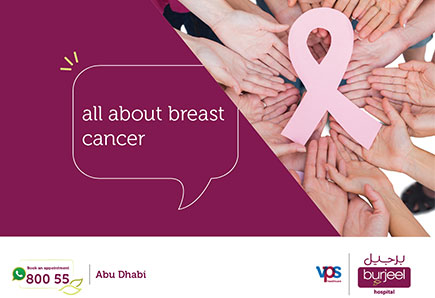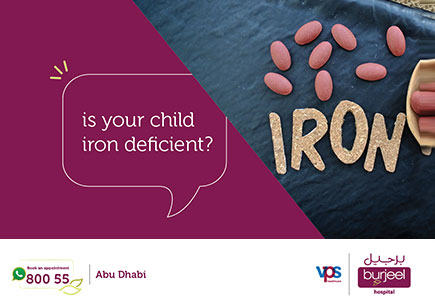International Women’s Day is a global celebration of women’s accomplishments in all fields, whether social, economic, cultural, scientific, political or any other. It is an opportunity to consider future challenges and potential solutions. Women account for half of the world’s population and play critical roles in their families, communities, and economies. Women are committed to driving change, assisting those around them, and improving the world, whether at home or work.
This year’s International Women’s Day theme is #BreaktheBias.
Today serves as an excellent reminder to continue the excellent work that women are doing. It is critical to reflect on our own well-being and that of our loved ones. Along with the more conventional health concerns, women may face health concerns throughout their lives related to pregnancy, birth control, menopause, and other conditions.
It is critical to see a health professional for any concerns they may have and to have them taken seriously. It is never too late to make positive changes to one’s lifestyle. It is more critical than ever to maintain an active lifestyle that includes healthy eating, regular exercise, routine health screenings, and a positive attitude. A physically active lifestyle can help lose weight, increase energy, improve mental health, maintain independence, and strengthen the body. A healthy lifestyle is well known to reduce the risk of developing certain chronic conditions such as heart disease, diabetes, stroke, chronic pain, and depression. Our medical experts are committed to eliminating bias and advancing women’s physical and mental health to live longer and healthier lives.
On this International Women’s Day make a commitment to yourself to make small changes today to reduce your risk of breast disease, cervical disease, heart disease, and stroke. Women need to stay informed about their health. Here are a few of our favorite tips for eating healthy, staying active, and keeping motivated.
Get Enough Sleep
Getting enough sleep is one of the most important things you can do for your health. Sleep helps you maintain a healthy weight, reduces stress, and improves the function of your immune system. A recent study showed that people who get fewer than six hours of sleep per night have a higher risk of developing diabetes, heart disease, and obesity. This is because sleep deprivation causes changes in hormones that regulate appetite and increases in blood pressure and heart rate that increase the risk for cardiovascular disease. The exact number varies depending on age and lifestyle factors like diet, exercise routine, and job demands. Generally, adults should get between seven and nine hours of sleep each night. If you’re having trouble getting those hours, it’s time to consult our Sleep Specialists.
Wear Sunscreen
Even on a cloudy day, up to 80% of the sun’s harmful UV rays can penetrate your skin. To ensure you’re completely protected from skin cancer, it’s essential to apply sunscreen to your exposed skin before going outside. With summer on its way, it’s important to remember the dangers of sun damage. If you have any questions about choosing the right sunscreen for your skin type, don’t hesitate to ask our Skin Specialists who will explain to you the cancer risk of the UV rays versus the cancer risk of tanning creams.
Eat More Vegetables
Eating vegetables is an essential part of a healthy diet. Vegetables are rich in vitamins and minerals, can help you maintain a healthy weight, and are naturally low in fat, cholesterol, and sodium. Veggies are packed with fiber, vitamins and minerals that help to improve our overall well-being. These nutrients help to guard us against heart disease, stroke, some cancers, diabetes, and even obesity. Our Nutritionists are here for your every step of the way to help you make the right dietary changes that can improve your overall health and well-being.
Drink Water Instead of Soda, Carbonated and Sugary Drinks
According to a study conducted by the American College of Cardiology, drinking one soft drink a day is tied to a 20% increase in a person’s risk of death. If you drink two soft drinks a day, that number is doubled. There are many reasons why this could be happening, including that soft drinks contains high amounts of sugar and other additives, which can lead to weight gain and tooth decay. Soft drinks also loaded with artificial ingredients like phosphoric acid, which can dissolve bones over time. It is also suspected of causing osteoporosis in people who consume it regularly, especially women and seniors. The human body is made up of between 50 and 65% water. Without water to break down nutrients, carry oxygen to the brain, regulate body temperature, protect body organs and tissues, and lubricate joints, the human body would not function. For all of these reasons, any time you’re choosing a beverage to drink, water should be your first choice. Water has no calories and no sugar, making it a more healthy option than soft drink. It’s also important to remember that sugar can leave you feeling more dehydrated. Water helps keep you hydrated and flush out toxins. It also helps you feel full and more energized, allowing you to perform at your best throughout your day. Drinking water also aids in weight loss by helping you to burn more calories, gives your skin a great glow, and has been linked to better brain function.
Limit Processed Foods
Limiting processed foods is essential for everyone, but women in particular need to pay attention to how much of these foods they’re eating. Processed foods include anything that has been cooked and then frozen, canned, dried, or pasteurized; any food with added sugar, fat, or salt; any food made from refined grains like white flour and white rice. Generally speaking, the more of these foods you eat, the higher your weight gain and chronic disease risk. But according to a 2019 study by the Annals of Internal Medicine, women are at an incredibly high risk of developing type 2 diabetes when they consume a lot of processed foods. The best way to avoid these risks is to limit your intake of processed foods.
Exercise for At least 30 Minutes Per Day
The medical community has long urged men and women to exercise for at least 30 minutes per day to maintain a healthy lifestyle. The American Heart Association (AHA) recommends that women get 150 minutes of moderate-intensity cardio activity each week, while men should get at least twice that. The AHA also reports that women who exercise have lower blood pressure decreased risk of heart disease, and a healthier body weight than those who don’t.
Maintain a Healthy Weight
Maintaining a healthy weight is a significant part of your overall health. If you are concerned about your weight, talk to your Weight loss Experts. They can help you find ways to eat healthier and get more physical activity to reach and maintain a healthy weight. If you are overweight, losing as little as 5 percent of your current body weight can improve your health. If you want to be healthy, your weight should be at a level where you are neither underweight nor overweight. Calculating your recommended weight based on your height and body type is possible. Our BMI Calculator can help you determine whether you’re at the right weight.
Not everyone realizes how important a human body’s waist circumference is, but that’s something we need to know if our waist measures more than 40 inches if we are men, or 35 inches if we are women. That means that if you have a large waist circumference, it is likely that you also have too much fat deep in your abdomen. Extra abdominal fat increases your risk for serious health problems, including heart disease and type 2 diabetes. If you carry extra weight around the center of your body, talk to your doctor about strategies that may be right for you to lose weight and reduce risk factors so that you can make healthier choices which will improve your life expectancy.
Take Care of Your Dental Health
Women, it’s time to take care of your dental health. When you take care of your teeth, you’re not only taking care of your smile but also your heart. Research has shown that gum disease is linked to increased risk for cardiovascular disease, diabetes, and other diseases. Taking care of your mouth can be as simple as brushing and flossing twice a day and regularly visiting the Dentist. It’s important to schedule annual dental checkups because they can catch issues before they become significant problems. Additionally, women should be aware that the hormones released during pregnancy can make them more susceptible to cavities and other oral health issues. Pregnant women should speak with their Obstetrics and Gynecology Experts about additional steps they can take to ensure good oral health during their pregnancy.
Get Enough Calcium and Vitamin D
Strong, healthy bones are crucial to a successful and fulfilling life. Your body needs Calcium to maintain healthy bones and teeth, nerve signaling, muscle contraction, vasodilation (widening of blood vessels), and secretion of hormones such as insulin. Calcium also plays a role in blood clotting, enzyme activation, maintaining heart rhythm, and preventing atherosclerosis (hardening or clogging of the arteries). Unfortunately, many women are not getting enough Calcium and vitamin D in their diets, which can lead to decreased bone density. The American Dietetic Association recommends that women aged 19-50 consume 1,000 mg of Calcium per day and 200-400 IU of Vitamin D per day. Women who do not consume enough Calcium and Vitamin D in their diet are at risk for osteoporosis and bone fractures later in life. One way to help guard against this is by getting enough Calcium and Vitamin D every day.
Get Yourself an Annual Eye Exam
The symptoms of glaucoma are more pronounced in women than in men, so women must get their eyes checked annually. Glaucoma is a disease where there is damage to the optic nerve, resulting in loss of vision. This happens when the pressure inside the eye increases due to a buildup of aqueous humor. Getting an annual eye checkup is one of the best things you can do for your health and well-being. If there’s anything amiss with your eyesight, whether or not you’ve noticed it yet, our Ophthalmologists will find it—and then they can help make sure it doesn’t get worse.
Say Goodbye to Smoking
The number of young female smokers of conventional cigarettes, particularly “Shesha,” is increasing. It’s a dangerous habit because it increases the risk of lung cancer, heart disease, and stroke, diabetes and high blood pressure, osteoporosis, and has a negative effect on reproduction and fertility. Women who smoke have a harder time conceiving than women who do not smoke. Women who smoke during pregnancy are more likely to experience pre- or postpartum loss. Additionally, their babies may be born prematurely or with other complications, such as being underweight.






